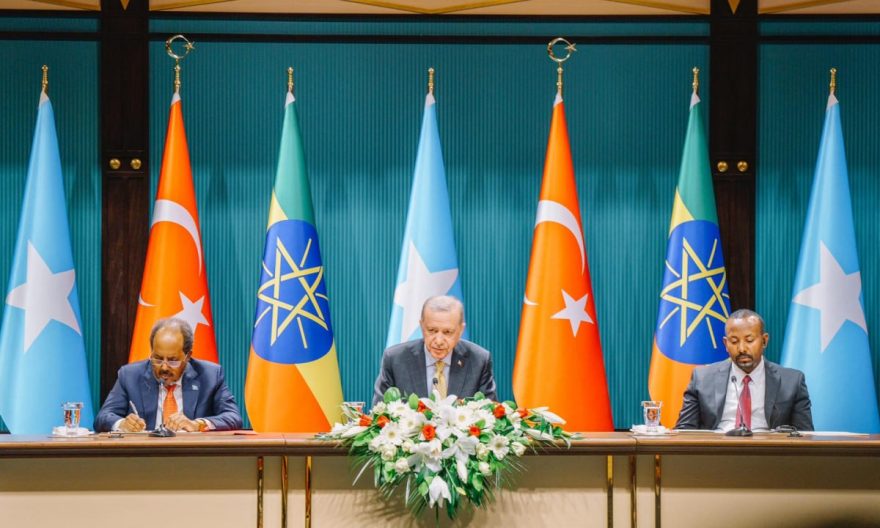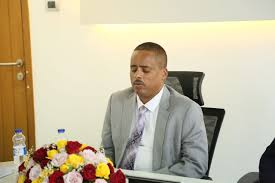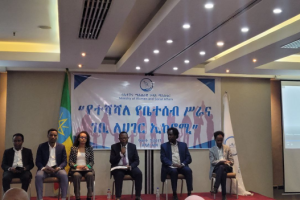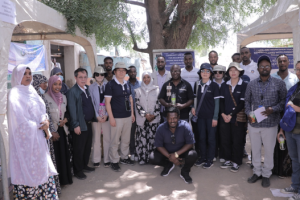
As 2025 begins today, The Ethiopian Herald highlights key socio-political, economic, and diplomatic events that Ethiopia undertook in 2024.
The just concluded year began with Ethiopia officially setting its agenda for gaining access to the sea, a long-forgotten issue in international discourse. By December, after months of negotiations, Somalia acknowledged Ethiopia’s need of sea access, as agreed in the Ankara Declaration. This agreement allows Ethiopia to negotiate and secure sea access through Somalia.
In July, Ethiopia initiated the implementation of a comprehensive macroeconomic policyreform. Key aspects included liberalizing economic sectors and transitioning the foreign currency exchange rate to a market-oriented system. These reforms aim to establish a modern macroeconomic framework, improve the trade and investment environment, enhance production, and strengthen public sector capabilities, according to the National Bank of Ethiopia.
Ethiopia also celebrated significant achievements in agriculture and tourism.
The dry-season wheat irrigation program was intensified, making Prime Minister Abiy Ahmed (PhD) the United Nations Food and Agriculture Organization’s Agricola Award winner in January. In September, the Intergovernmental Authority on Development (IGAD) also named the Prime Minister as Tourism Champion for a three-year term, which recognized his leadership in promoting sustainable tourism and economic growth in the region.
On the diplomatic front, Ethiopia played a pivotal role in regional peace building. Prime Minister Abiy Ahmed (PhD) was the first head of government to visit Port Sudan following the outbreak of Sudanese civil war, advocating for sustainable solutions on July 9.
Ethiopia also hosted high-profile international events, including the United Nations Financing for Development meeting in July and the FAO’s World Without Hunger summit. The summit was attended by global leaders and stakeholders, highlighted Ethiopia’s commitment to eradicating hunger and promoting sustainable development.
The opening session of the FAO’s World Without Hunger summit was attended by Prime Minister Abiy Ahmed, UNIDO Director–General Gerd Muller, Crown Prince of Abu Dhabi Sheikh Khaled bin Mohamed bin Zayed Al Nahyan, and African Union Commission Chairperson, Moussa Faki Mahamat. Other attendeesincludedHeads of State/Government, Ministers, UN agencies, the private sector, financial institutions, donor community, DFI/IFI, civil society, non-governmental organizations, and academia.
Moreover, Ethiopia hosted the Confederation of African Football’s executive committee meeting in October.
Also, Leaders such as French President Emmanuel Macron and Czech Deputy Prime Minister Marian Jurečka had visited the country in the same year, fostering diplomatic ties and discussing potential collaborations in investment, education, and culture.
“We have discussed potential collaborations in various fields, including increasing French investments, as well as strengthening ties in education and culture,” PM Abiy posted on his social media accountafter conferring with his French counterpart.
Urban corridor development was another highlight of 2024. The corridor development initiative, which began in Addis Ababa, has been expanded to other cities like Hawassa, Bahir Dar, Jimma, Adama, Bishoftu, Dessie, Kombolcha, Arba Minch, and Harar. This project aims to modernize the main roads and other infrastructures of cities and towns.
In November, Ethiopia officially launched the Disarmament, Demobilization, and Reintegration (DDR) program for ex-combatants in Tigray, marking a significant step toward long-term domestic peace and stability affairs.
As Ethiopia enters 2025, these milestones reflect its continued efforts toward progress and resilience on multiple fronts.
BY YESUF ENDRIS
THE ETHIOPIAN HERALD WEDNESDAY 1 JANUARY 2025





